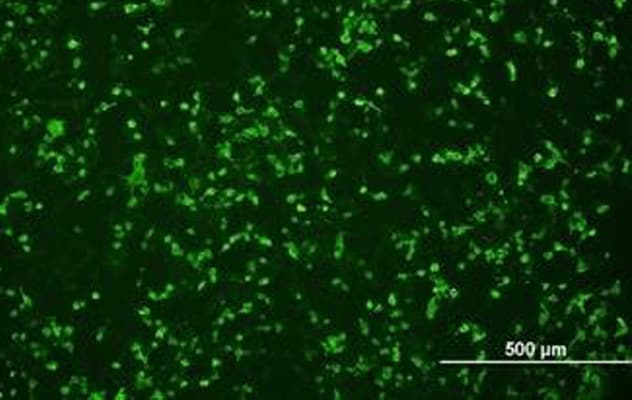Nov. 25, 2021
Mayo Clinic is working to improve outcomes for individuals with autoimmune encephalitis, an often complex disease that can cause persistent cognitive and physical deficits. The goal is to better treat the acute phase of the disease to promote faster and more-complete recovery.
"An individual with autoimmune encephalitis might have 40 to 50 more years to live. We want those years to be the best possible," Gregory (Gregg) S. Day, M.D., a behavioral neurologist at Mayo Clinic in Jacksonville, Florida.
Autoimmune encephalitis primarily affects people from their early teenage years to age 50, and women more often than men. Mayo Clinic's approach incorporates three neurological subspecialties: autoimmune neurology, behavioral neurology and epileptology. Specialists in laboratory medicine, infectious diseases, cardiology, neurocritical care, psychiatry, and obstetrics and gynecology also are part of the treatment team when needed.
"Autoimmune encephalitis is a treatable disease. But some cases end up being very complex," Dr. Day says. "We see patients who have spent an inordinate amount of time in the hospital and even the intensive care unit due to the many complications of this disease."
Treatment currently relies on off-label intravenous steroids and immunoglobulins. "Those therapies can provide reasonable outcomes. But over the years, we've realized that individuals continue to have issues with cognitive deficits, fatigue, psychological conditions including depression and sometimes seizures," Dr. Day says. "Patients might have good motor function, but they can't return to school or to their jobs."
Mayo Clinic is exploring the potential benefit of inebilizumab, a monoclonal antibody recently approved for the treatment of neuromyelitis optica spectrum disorder. "Improving outcomes for people with autoimmune encephalitis is an enterprisewide priority," Dr. Day says. "We want to move the field forward."
A groundbreaking and comprehensive approach
Mayo Clinic has pioneered the diagnosis and management of autoimmune encephalitis. In a groundbreaking population-based study published in the January 2018 issue of the Annals of Neurology, Mayo Clinic researchers reported that autoimmune encephalitis is as common as infectious encephalitis. That finding underlined the need for precise diagnosis of encephalitis, as the autoimmune and infectious diseases require different treatment.
تأكيد التشخيص

تأكيد التشخيص
توضح مقايسة التألق المناعي غير المباشر ارتباط الأجسام المضادة الذاتية للمريض بخلايا الكلى الجنينية البشرية التي تعبر عن مستقبلات ن-مثيل-د-أسبارتات. وتؤكد النتائج وجود أجسام مضادة ذاتية مناهضة لمستقبلات ن-مثيل-د-أسبارتات وتحدد تشخيص التهاب الدماغ بأضداد مستقبل ن-مثيل-د-أسبارتات، وهو أحد الأسباب الأكثر شيوعًا لالتهاب الدماغ المناعي الذاتي.
But establishing a diagnosis of autoimmune encephalitis is challenging. Patients typically are teenagers or young adults who initially present with psychotic delusions, increased anxiety or insomnia. "These are common complaints that, in isolation, aren't usually due to autoimmune encephalitis," Dr. Day says.
Within weeks, more than 95% of patients experience seizures, movement disorders or other focal neurological deficits. The rapid onset of these signs, with no other apparent cause, warrants antibody testing. Mayo Clinic Laboratories was among the first centers to offer an antibody panel to test for autoimmune encephalitis.
"The right diagnosis leads to standard of care treatments. The wrong diagnosis leads to incorrect treatment and high risk of serious medical morbidity or mortality," Dr. Day says. "We have an experienced multidisciplinary team that can provide a comprehensive diagnostic work-up. Although autoimmune neurology diseases are rare overall, they're not rare at Mayo Clinic."
Mayo Clinic specialists typically begin treating autoimmune encephalitis as soon as the disease is suspected. "We know that shortening the time from symptom onset to treatment is the best way to improve outcomes," Dr. Day says.
Mayo Clinic's cardiologists provide care for patients who experience cardiac arrhythmia. Obstetricians and gynecologists help manage care for women with gynecological tumors, which can cause an immune system response that leads to autoimmune encephalitis.
As a nationwide center, Mayo Clinic has the experience and expertise needed to manage patients with the most challenging autoimmune encephalitis. "We have monthly conferences with colleagues from our three main campuses to discuss complex cases," Dr. Day says. "We also are able to phone our Mayo Clinic Laboratories colleagues to discuss specimens they're running."
Mayo Clinic researchers, including specialists in the Center for Multiple Sclerosis and Autoimmune Neurology, also continue to study autoimmune encephalitis. "As an enterprise, we continually ask ourselves how we can improve patient care," Dr. Day says. "It's what you'd expect from Mayo Clinic."
For more information
Dubey D, et al. Autoimmune encephalopathy epidemiology and a comparison to infectious encephalitis. Annals of Neurology. 2018;83:166.
Mayo Clinic Laboratories. Mayo Clinic.
Center for Multiple Sclerosis and Autoimmune Neurology. Mayo Clinic.